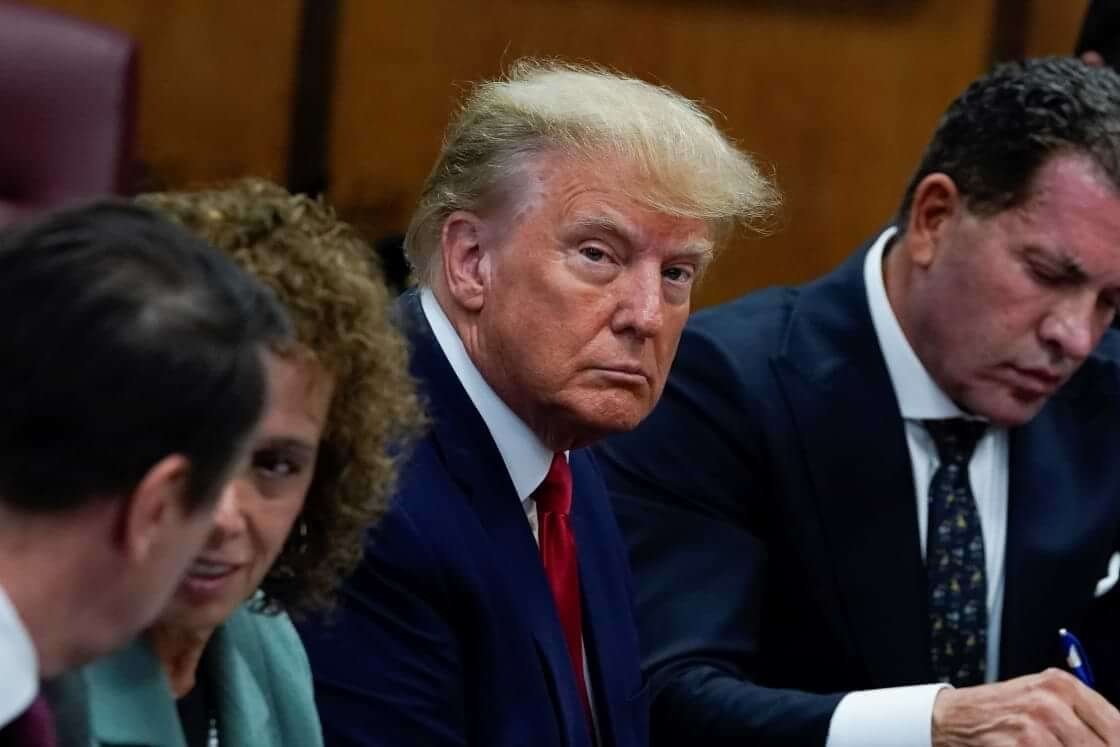by Alexis Simendinger & Kristina Karisch
Former President Trump’s lawyers will argue today to the Supreme Court that he can do just about anything he desires and be immune from prosecution, based on the perks of the high office he held and lost.
On Tuesday, Trump and his representatives suggested he has a right while on trial to counter his critics and foes on social media and to the press.
Trump is facing 34 charges in a Manhattan courtroom in a case billed by prosecutors as a criminal conspiracy to influence the 2016 election, in part by partnering with the National Enquirer to pay for and then lock up potentially salacious information that might harm Trump’s standing among voters. The former president denies wrongdoing.
Former tabloid publisher David Pecker, a subpoenaed witness and avowed friend of Trump’s, took the stand for a second day Tuesday to describe helping the 2016 campaign, The Hill’s Niall Stanage reports. An article and photograph at the time about presidential rival Sen. Ted Cruz (R-Texas), his father and assassin Lee Harvey Oswald was entirely invented by The National Enquirer at the behest of Trump’s team, Pecker testified.
Meanwhile, Trump wants to respond to “a barrage of political attacks,” attorney Todd Blanche told Judge Juan Merchan while defending his client earlier Tuesday against prosecutors’ complaints that he knowingly violated a gag order at least 10 times and should be fined for each instance. The judge’s decision is pending.
The Hill: Prosecutors want Trump held in contempt. What does that mean?
Trump’s appeal today to the Supreme Court of absolute immunity is unlikely to hold up, some legal scholars predict. But it’s bought the presidential candidate some time, and that could be key ahead of the Nov. 5 election.
To press ahead with trial preparations, federal prosecutors want a quick decision from the high court, which is expected to rule on the immunity question in late June. It could take three months once the court acts before a federal trial begins. No president or former president has faced criminal prosecution, and Trump is juggling indictments in four jurisdictions while contesting them all.
When the Supreme Court agreed on Feb. 28 to hear the case to be argued today, the justices summed up the issue before them as “whether and if so to what extent does a former President enjoy presidential immunity from criminal prosecution for conduct alleged to involve official acts during his tenure in office.”
The former president says he never sought to subvert the 2020 election, but instead seeks to protect the election system, a strategy of recasting a negative with virtuous intent (The New York Times). Trump’s actions will be fact-checked by witnesses and other evidence while he’s a defendant. He says he’s considering taking the stand during the “hush money” trial.
“I tell the truth,” he said early this month.
